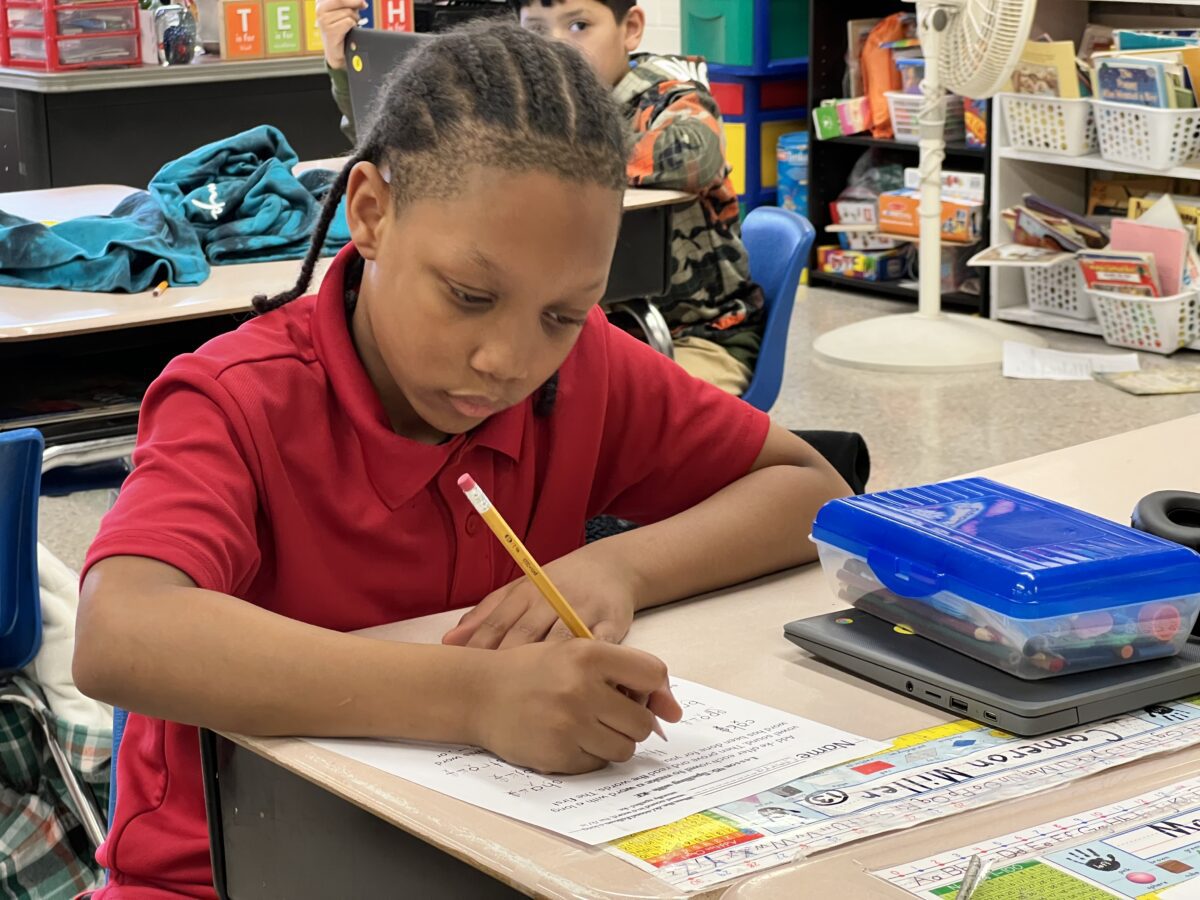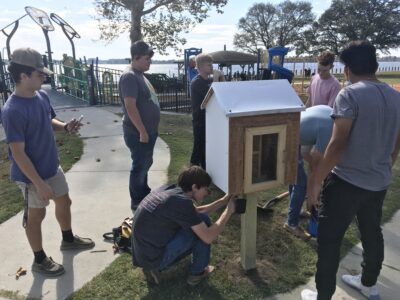
As our students and schools prepare to slow down for the holidays, we are proud to reflect on a significant milestone: the completion of the statewide LETRS (Language Essentials for Teachers of Reading and Spelling) professional development for preK-5 educators. This achievement marks an essential first step toward transforming literacy instruction throughout the state, aligned with research-based strategies.
Our gratitude extends to the committed investment made by state leaders, policymakers, and legislators, whose support has already begun to yield positive results. North Carolina has consistently outperformed national Amplify DIBELS 8th Edition (Dynamic Indicators of Basic Early Literacy Skills) data for the past three years, a positive trend that reflects its strong educational performance.
While we take time to celebrate these early successes, it is crucial to recognize that our journey is just beginning. There remains significant work to be done to ensure that every student in our state achieves literacy proficiency.
Data impact: One degree at a time
An important quote to remember, relevant to our current reality, comes from Brian Tracy: “If you want to sail your ship in a different direction, you must turn one degree at a time.” This applies to any significant system shift. If we attempt to change course too quickly, we increase the risk of capsizing or losing the crew. Every improvement, even if only one “degree,” should be celebrated and considered a win, acknowledging that intentional work continues as we gradually change direction.
Teaching a child to read is a challenging task. However, teaching a classroom of children to read while making ongoing adjustments based on data-driven decisions adds layers of complexity. Understanding the complexities takes time and intentionality that requires a culture shift beyond the scope of the classroom teacher.
We are often asked: “How is Amplify data correlated to North Carolina’s End of Grade assessment?” and “Amplify data is shifting in a positive direction; when can we expect to see an impact on EOG scores?” Unfortunately, if the data does not show rapid improvement, we are quick to abandon everything rather than delve deeper to understand the root cause and develop an aligned plan of action. However, when analyzing systems data, it is crucial to understand how large-scale change operates.
Effective systems consist of aligned, interrelated, yet interdependent components that work together to produce successful outcomes. Without a clear understanding, we are at risk of reverting back to old habits that force educators to teach to minimal standard expectations driven by end-of-grade tests, never moving students beyond surface-level content knowledge. Equipping educators with training is a great start, but it is only one part of the overall system that requires change.
State, district, and local leaders must understand the system components beyond general data presentations to identify potential root causes to develop effective short- and long-term strategic plans with manageable next steps. The Office of Early Learning (OEL) developed a Literacy Systems Effectiveness Check Rubric for districts to utilize, aligned to literacy systems work. This allows local leaders to examine their current systems, expand upon identified strengths, and prioritize ongoing support for next steps.
As we consider where North Carolina is along the literacy journey, it’s important to remember that half of the state finished LETRS Volume II only five months ago, after the end-of-grade reading assessment. This portion of the professional development focused on the more complex components of learning to read, including vocabulary and comprehension.
Additionally, many North Carolina educators are also learning a new curriculum aligned with the science of reading. The potential timeline for seeing data shifts on a larger scale, at a minimum, is referenced in the LETRS – NC Cohort Timeline – Evaluation Shifts document that was presented at the beginning of statewide implementation, with the disclaimer that it may vary depending on other external influences.
Support and sustainability: So what; now what?
North Carolina continues to excel in terms of legislation and funding, providing sustainable support and comprehensive coaching beyond just professional development. While many states across the nation lack these supports and continue to struggle, our state remains committed to supporting and sustaining all literacy efforts.
As part of the sustainability plan, OEL has strategically organized staff to develop a layered coaching systems model. This framework aims to channel ongoing coaching and communication across systems, from state to student, across North Carolina. Regional early literacy consultants receive monthly content coaching and guidance from OEL designed to provide turnkey support for the early literacy specialists (ELS) in their respective districts. While all ELS receive the same core training, the consultants provide differentiated follow-up support, acknowledging that each district has specific implementation needs. Both positions collaborate with the district point of contact to determine how the ELS best fits within the district’s local literacy team to integrate aligned support throughout various stakeholder groups.
The NC ELS coaching framework is unique compared to most coaching models, as it aims to improve processes throughout the larger system while also providing targeted support to local schools, based on district priorities. ELS collaborate with school leadership to identify goals and priorities, which may include professional learning community (PLC) guidance, professional development, data reviews, ongoing coaching cycles, and classroom modeling as needed.
Furthermore, OEL literacy facilitators continue to provide LETRS training beyond the conclusion of the state contract. This has enabled districts to cut down on costs and allocate state literacy funds to other aligned literacy resources. The literacy facilitators have conducted over 750 LETRS sessions with over 17,000 participants, while offering resources, guidance, and coaching to local district LETRS facilitators.
As our journey continues, I encourage all stakeholders to closely examine the shifts in the intentional literacy systems and the outcomes happening throughout our state. Simultaneously, we must consider any obstacles or barriers that may no longer align with the updated system.
I am extremely grateful for the leadership of Superintendent Catherine Truitt and her commitment to make this possible for North Carolina teachers and students. The statewide shift to the science of reading is part of the legacy she leaves behind during her transition. Her commitment to stand firm in her decision related to early literacy was never an easy task. Yet her answer always reflected a simple message: reading is foundational to everything, and we must do right by kids. She has been a testament to the fact that leadership matters.
Passionate educators across North Carolina are igniting enthusiasm and are preparing to create a transformative literacy movement unlike any we have previously experienced. The efforts of North Carolina educators are only in their infancy; this marks merely the beginning of our narrative.




